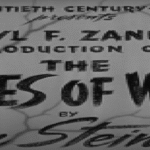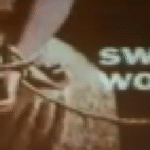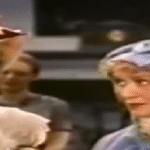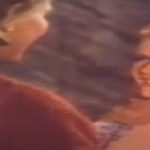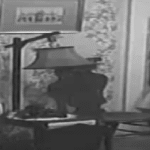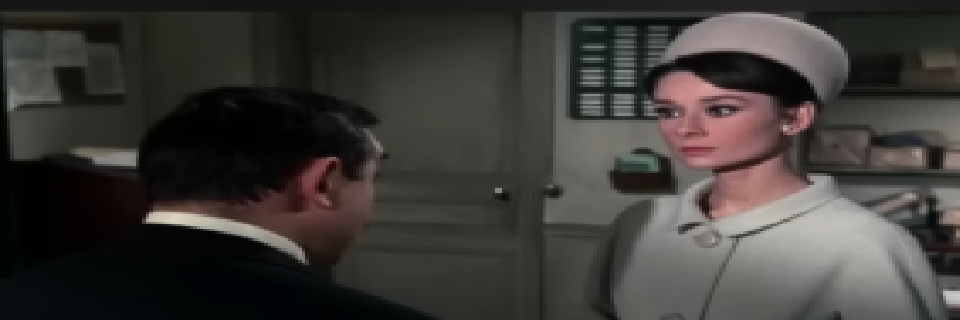Stanley Donen’s Charade, often described as “the best Hitchcock movie Hitchcock never made,” is a sparkling blend of romantic comedy, mystery, and suspense, wrapped in an elegant 1960s Parisian aesthetic. Starring Audrey Hepburn and Cary Grant, the film is a genre-defying classic that spins a story of murder, mistaken identities, and a treasure everyone is desperate to find—but no one fully understands.
The film opens with Regina “Reggie” Lampert (Hepburn), a sophisticated American woman vacationing in the French Alps, contemplating divorce from her mysterious husband, Charles. Her carefree ski holiday is interrupted when she learns that Charles has been murdered in Paris and that he was leading a life filled with secrets. He left behind a sparse apartment and a small travel bag—his belongings auctioned off like the remnants of a stranger. Reggie is stunned to discover that she knew virtually nothing about the man she married.
At the funeral, a string of ominous characters—Tex Panthollow (James Coburn), Herman Scobie (George Kennedy), and Leopold W. Gideon (Ned Glass)—pay their respects in bizarre and unsettling ways, each testing to see if Charles is truly dead. These men are former World War II comrades of Charles who believe he stole a fortune from them during a covert OSS operation behind enemy lines. That money, a quarter of a million dollars intended for the French Resistance, went missing, and each man believes Reggie now has it.
Enter Peter Joshua (Cary Grant), a charming and enigmatic American who meets Reggie at her ski resort and reappears in Paris, seemingly by coincidence. He becomes her protector as threats from Charles’s old accomplices escalate. But Peter isn’t what he seems. As Reggie learns more, Peter repeatedly changes names and backstories—becoming Alexander Dyle, Adam Canfield, and finally Brian Cruikshank—each persona more dubious than the last. Despite her doubts, Reggie finds herself drawn to him, her trust wavering but her heart leaning toward hope.
Reggie is caught in a dangerous game of cat-and-mouse, not just with Charles’s former partners, but with the elusive truth. Each suspect is colorful and dangerous in his own way: Tex is gruff and menacing with a sarcastic streak, Scobie is violent and unpredictable with a metal claw for a hand, and Gideon is a weaselly, twitchy man full of nervous energy. One by one, the trio starts dying under mysterious circumstances, leading Reggie to wonder if Peter—or whatever his name is—is behind the killings.
In the middle of this intrigue, Reggie meets a U.S. Embassy official, Hamilton Bartholomew (Walter Matthau), who tells her about the stolen money and urges her to find it before the others do. He claims to be investigating the case on behalf of the government, but as the layers peel back, nothing is quite what it seems.
The “MacGuffin” of the story—this missing fortune—remains elusive. It is eventually discovered to have been hidden in plain sight, disguised as rare stamps on an envelope Charles mailed to Reggie before his death. It’s a twist that plays perfectly into the film’s central theme: deception. Nothing in Charade is as it appears. People lie, identities shift, and even the innocent carry secrets.
Hepburn’s Reggie is the emotional anchor of the film. Initially naive and overwhelmed, she evolves into a sharper, more independent woman, unafraid to confront danger and deception. Her chemistry with Cary Grant is electric, a dance of flirtation and suspicion. Grant, for his part, delivers one of his most charming and layered performances, playing a man whose charm is a mask for deeper, more complicated motives.
Director Stanley Donen—better known for musicals like Singin’ in the Rain—crafts Charade with a visual flair and a rhythm that echoes Hitchcock’s suspense but retains his own breezy style. The film plays with tone masterfully, shifting from light-hearted romance to genuine danger in a heartbeat. Henry Mancini’s jazzy score underlines this tonal dance, mixing Parisian elegance with noir-ish tension.
As Reggie and Peter (or Brian, finally) close in on the truth, the film delivers a climax full of reversals and revelations. In a final confrontation beneath the Palais-Royal theater, the mysterious Bartholomew is revealed to be Carson Dyle—the presumed-dead fourth member of the wartime team—who has been manipulating everyone in search of the treasure. His downfall is swift and dramatic, a fitting end for a man consumed by greed and betrayal.
In the film’s final moments, Reggie insists that Brian—whose true identity is that of a Treasury agent tracking the stolen money—must propose marriage using all of his aliases. It’s a playful yet sincere conclusion that ties together the movie’s dual threads: the romantic and the mysterious. After so much doubt and disguise, Charade closes with the promise of honesty and love.
What makes Charade endure is not just its clever plot or its memorable characters, but its balance. It’s funny without being silly, suspenseful without being grim, and romantic without being cloying. The dialogue sparkles with wit—thanks to Peter Stone’s screenplay—and the setting, 1960s Paris, gives the film a timeless elegance. Its genre-blending nature makes it difficult to categorize, but also deeply rewarding.
Moreover, Charade is a commentary on identity, trust, and the facades people wear. Everyone in the film is pretending to be someone else. The real challenge for Reggie—and the audience—is figuring out which masks hide danger and which hide vulnerability. Even when the final answers come, the film has conditioned us to keep questioning, to stay on our toes.
Though it was released in 1963, Charade feels fresh and modern in its pacing and cleverness. It’s a rare film that captures the magic of classic Hollywood while subverting its conventions. It invites us into a world of shadowy corners and whispered lies, only to lift the curtain and reveal that sometimes, the greatest charade is the one we play with our own hearts.

